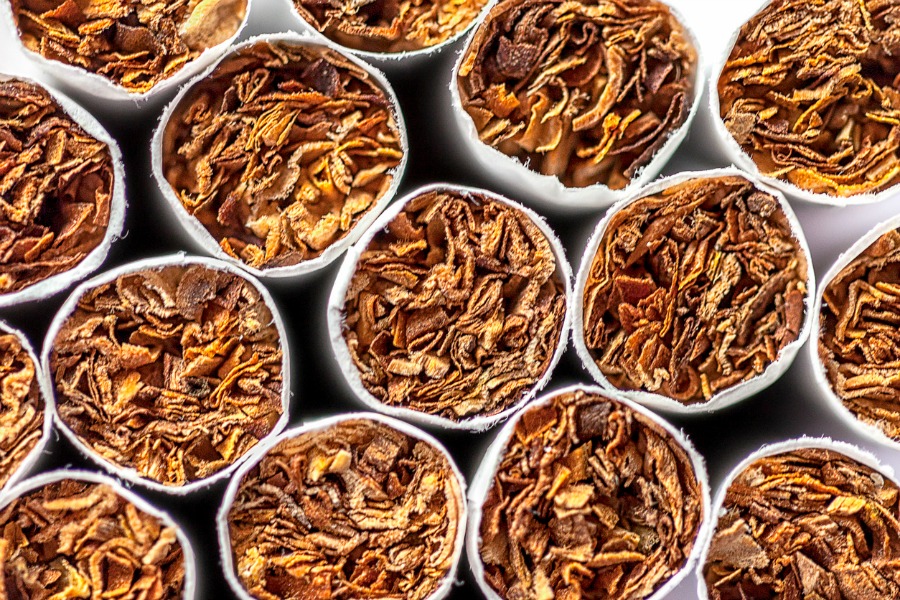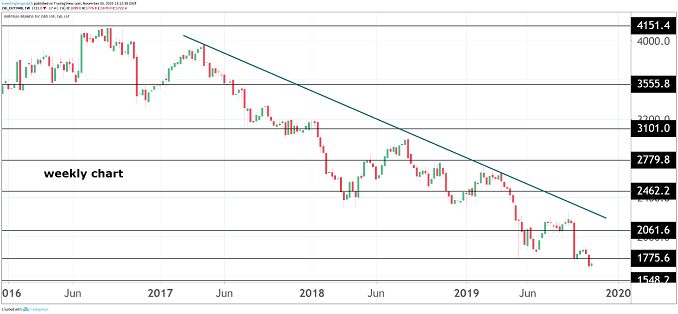Imperial Brands: A 12% yield as shares retest 10-year low
Don't expect 10% dividend growth, but Imperial is still one of the most generous payers around.
5th November 2019 13:29
by Graeme Evans from interactive investor
Don't expect 10% dividend growth, but Imperial is still one of the most generous payers around.

Spoiled by 11 years of 10% dividend growth, Imperial Brands (LSE:IMB) shareholders could be forgiven for viewing today's annual results as the end of an era for the FTSE 100 stock.
The current financial year marks the start of Imperial's new progressive dividend policy, which will be closely tied to the underlying performance of the business. This switch comes with debt-laden Imperial already facing heightened levels of uncertainty, chiefly around whether US safety fears will scupper industry ambitions over e-cigarettes.
These next generation products (NGP) were supposed to be Big Tobacco's big hope, but in the past few weeks Imperial has issued a profits warning and now revealed in today's results that it is taking a more cautious approach on its outlook for the 2020 financial year.
Low single-digit revenues and earnings per share growth are now expected, with the overall performance expected to be weighted towards the second half of the year.
This hasn't helped the City's dividend expectations for the year, with UBS forecasting a rise of just 1% to 208.65p and Jefferies slightly more optimistic with a 5% rise to 217p — representing a 75% pay-out ratio to earnings per share.
Despite the UBS cautious estimate, Imperial shareholders would still get a projected dividend yield of 12% for their troubles after a decade of 10% dividend growth. The yield also reflects a shares slide of 27% so far this year and 45% since the start of 2018, with UBS now valuing the stock at 6x 2020 earnings and a whopping 70% discount to European staples.
The bank said:
"The current discount to staples implies the market does not view the current earnings profile as sustainable, and that Imperial will be unable to compete effectively in NGPs."

Source: TradingView Past performance is not a guide to future performance
While the NGP business grew revenues by 48% in the financial year just ended, this was below the company's expectations after a marked slowdown in US vaping. The weakness came after the Trump administration vowed to introduce an industry ban on flavoured e-cigarettes due to concerns they encourage under-age vaping use.
Imperial, which trades as MyBlu, said today it shared the concerns, adding that it was committed to enforcing stringent measures to prevent youth access. And given the number of US reports of health issues linked to the use of illicit vaping products, it also supports the creation of a more rigorous regulatory framework.
Broker Jefferies believes that the vaping worries are likely to be overdone, but still cut its price target from 3,800p to 2,400p to reflect the near-term risk and uncertainty.
"The potential for any significant 12-month re-rating is limited for a number of reasons."
Jefferies highlighted the company's record of recent profit disappointment, as well as the potential delivery risk around vaping products and the company's leadership uncertainty as it looks for a replacement for long-time CEO Alison Cooper.
With future growth currently so reliant on e-cigarettes, Jefferies analysts said they would not be surprised if the company increased its exposure to the legalised cannabis sector. This follows July's announcement of a R&D partnership with Canada's Auxly Cannabis Group (TSX:XLY).
The need to diversify comes after a year in which tobacco volumes declined 4.4% to 244.2 billion sticks, although tobacco revenues rose 1.1% on a constant currency basis to £7.7 billion.
As forecast in the September profits warning, adjusted earnings per share was broadly flat at 273.3p a share. Reported net debt increased by £100 million to £12 billion, but this pales in comparison to the £45 billion reported by rival British American Tobacco (LSE:BATS) in August.
With so much debt to service, Imperial shareholders are increasingly worried about what will happen to the dividend if the company fails to maintain its high levels of cash conversion, or has to substantially increase investment.
It paid interest of £488 million last year, which was down slightly on a year earlier due to a higher proportion of borrowings in euros. This compares with dividends paid during 2019 amounting to £1.8 billion, rising to £1.96 billion in respect of today's latest 10% increase.
Imperial pays a quarterly dividend in order to give shareholders a more regular cash return, with the third payment of 72p for 2018/19 due to be paid on December 31.
These articles are provided for information purposes only. Occasionally, an opinion about whether to buy or sell a specific investment may be provided by third parties. The content is not intended to be a personal recommendation to buy or sell any financial instrument or product, or to adopt any investment strategy as it is not provided based on an assessment of your investing knowledge and experience, your financial situation or your investment objectives. The value of your investments, and the income derived from them, may go down as well as up. You may not get back all the money that you invest. The investments referred to in this article may not be suitable for all investors, and if in doubt, an investor should seek advice from a qualified investment adviser.
Full performance can be found on the company or index summary page on the interactive investor website. Simply click on the company's or index name highlighted in the article.